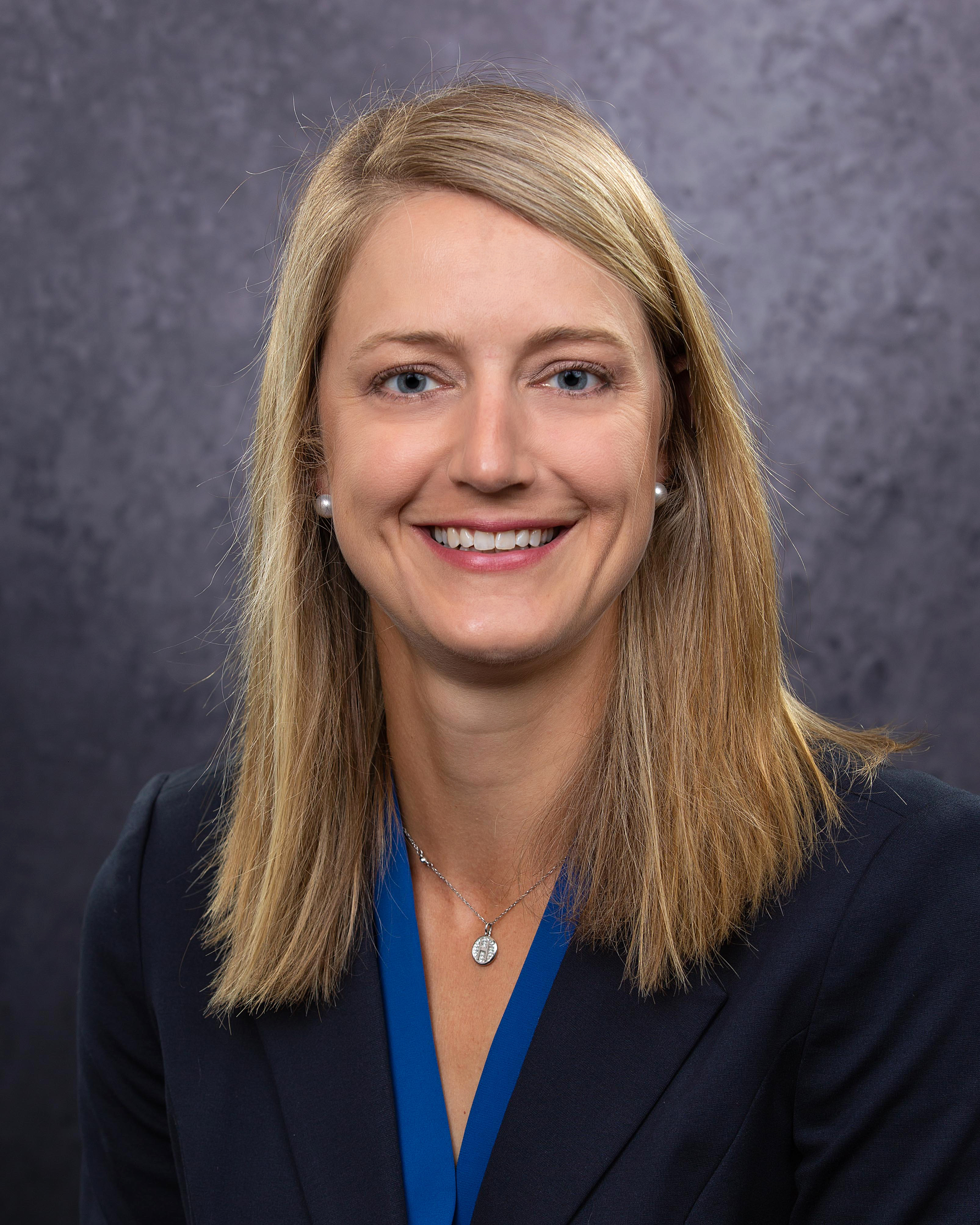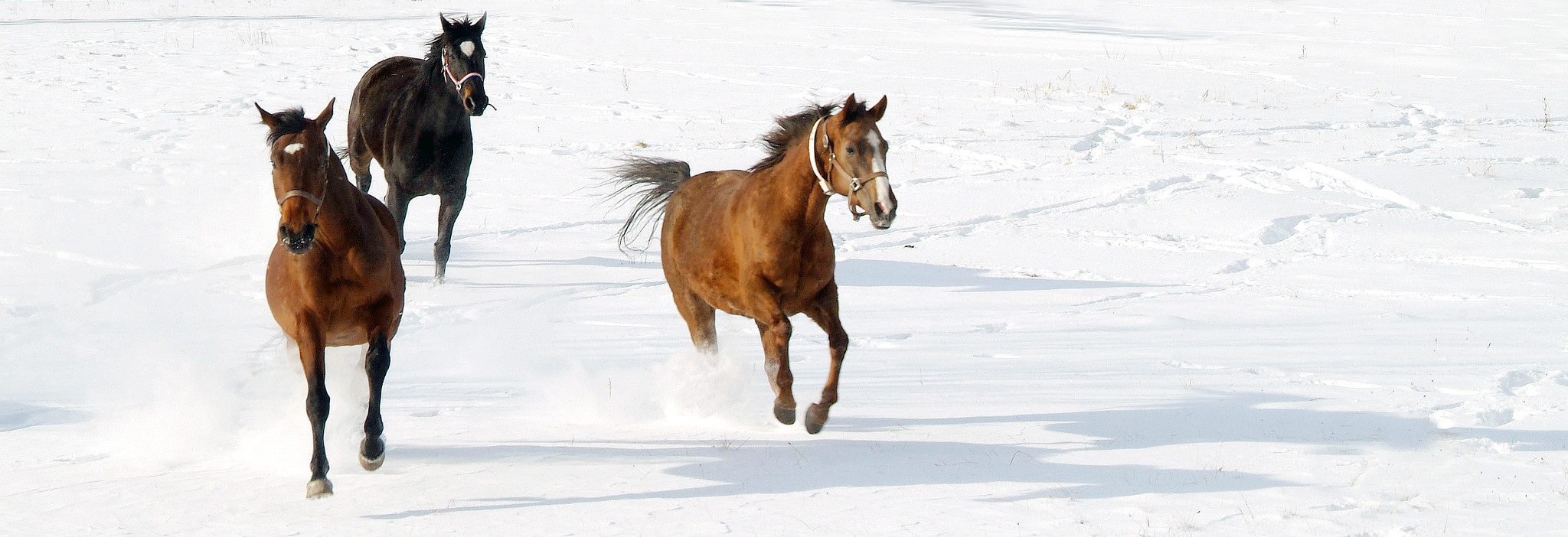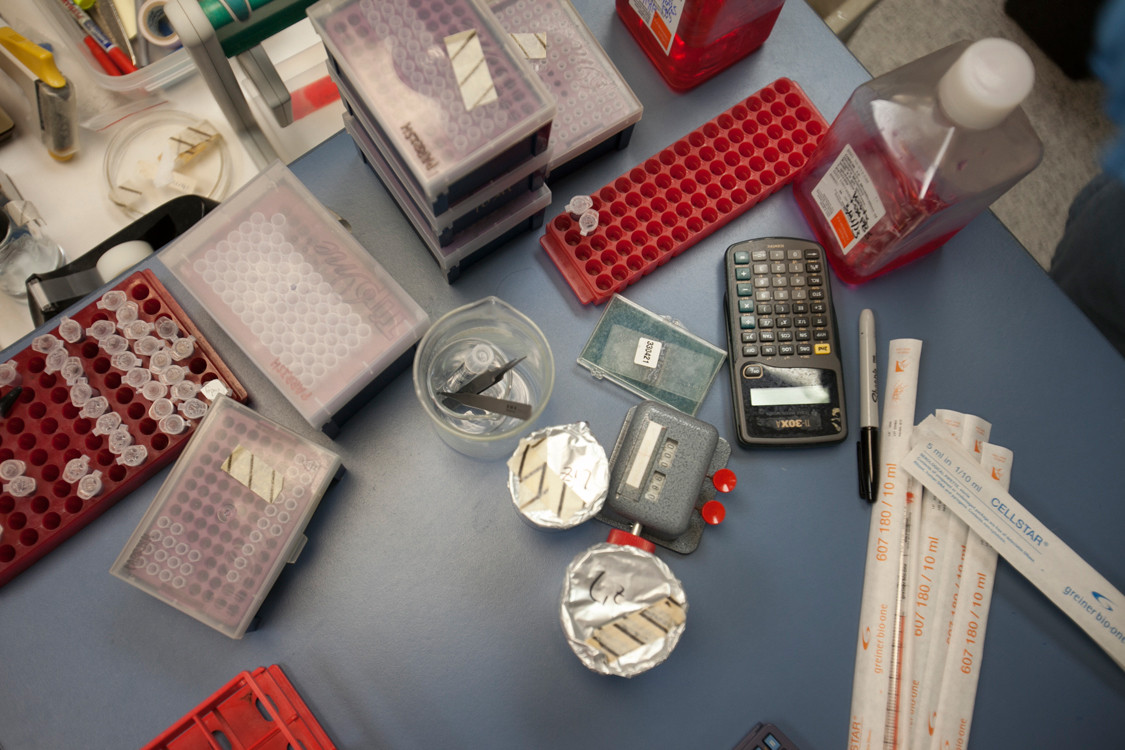Heidi L. Reesink, VMD, PhD, DACVS-LA

Department of Clinical Sciences
Diplomate - American College of Veterinary Surgeons—Large Animal
Associate Professor, Section of Large Animal Surgery
Department of Clinical Sciences
Cornell University College of Veterinary Medicine
930 Campus Road, Box 32
Ithaca, NY 14853
Phone: 607-253-3100 Equine/Nemo Farm Animal Hospital
Email: heidi.reesink@cornell.edu
Research/Clinical Interest
Research: Veterinary orthopedics — osteoarthritis and fracture.
Osteoarthritis — The Reesink laboratory is investigating new biomarkers and novel joint lubricants, regenerative medicine therapies, and gene therapy approaches for the treatment of joint disease and osteoarthritis (OA). We seek to advance ‘One Health’ therapeutic design and interventional strategies aimed at restoring cartilage health, improving comfort, and prolonging joint longevity and patient mobility for both veterinary and human patients alike.
Fracture — The Reesink laboratory is examining the pathophysiology of fetlock fractures in racehorses through quantitative CT imaging and bone quality assessment. Long-term goals of this work are to develop clinically relevant methods of assessing fracture risk in equine athletes and to identify factors associated with increased fracture risk.
Clinical: Equine and farm animal orthopedic surgery; equine sports medicine and lameness.
Education and Training
- 2016 Cornell University, PhD in Comparative Biomedical Sciences
- 2012 Diplomate, American College of Veterinary Surgeons-Large Animal
- 2008-2011 Cornell University, Residency in Large Animal Surgery
- 2007-2008 University of Pennsylvania, Internship in Large Animal Surgery
- 2007 University of Pennsylvania, VMD (Summa Cum Laude)
- 2003 Iowa State University, BS in Zoology (Honors)
Biography
Dr. Reesink is an Associate Professor of Large Animal Surgery at Cornell University with clinical interests in orthopedic surgery and sports medicine. She received her veterinary medical degree (VMD) from the University of Pennsylvania in 2007, followed by surgical residency and PhD training at Cornell prior to joining the faculty in 2016.
Heidi is a Diplomate of the American College of Veterinary Surgeons (DACVS-LA) with clinical interests in equine and farm animal orthopedic surgery, performance horse medicine, and lameness. She is interested in developing and advancing therapies aimed at restoring joint and tendon health, improving patient comfort, and prolonging performance horse longevity.
Publications
![]() Please select the PubMed link for a list of Dr. Reesink's publications.
Please select the PubMed link for a list of Dr. Reesink's publications.
- Caspers MK, Gier C, Reesink HL. A systematic review of equine non-septic tenosynovitis: Pathologic lesions, outcomes, and surgical complications. Equine Vet J. 2023 Sep 21. Online ahead of print. doi: 10.1111/evj.14000. PMID: 37735927.
- Pearson GB, Papa BS, Mosaddegh A, Cooper H, Aprea M, Pigott J, Altier C, Cazer CL, Reesink HL. Equine synovial sepsis laboratory submissions yield a low rate of positive bacterial culture and a high prevalence of antimicrobial resistance. Am J Vet Res. 2023 Jul 17;1-10. doi: 10.2460/ajvr/23.05.0085. PMID: 37460096.
- Noordwijk, KJ, Qin R, Diaz-Rubio ME, Zhang S, Su J, Mahal LK, Reesink HL. Metabolism and global protein glycosylation are differentially expressed in healthy and osteoarthritic equine carpal synovial fluid. Equine Vet J. 2022 Mar;54(2):323-333. doi: 10.1111/evj.13440. Epub 2021 Mar 18. PMID: 33587757. PMCID: PMC8364562.
-
Noordwijk KJ, Chen L, Ruspi BD, Schurer S, Papa B, Fasanello DC, McDonough SP, Palmer SE, Porter IR, Basran P, Donnelly EL, Reesink HL. Metacarpophalangeal joint pathology and bone mineral density increase with exercise but not with incidence of proximal sesamoid bone fracture in Thoroughbred racehorses. Animals. 2023 Feb 24;12(5):827. doi: 10.3390/ani13050827. PMID: 36899684.
-
Cresswell EN, McDonough SP, Palmer SE, Hernandez CJ, Reesink HL. Can quantitative computed tomography detect bone morphological changes associated with catastrophic proximal sesamoid bone fracture in Thoroughbred racehorses? Equine Vet J. 2019 Jan;51(1):123-130. doi: 10.1111/evj.12965. PMID: 29758110.
Honors and Awards
- 2022 World Veterinary Orthopedic Congress (WVOC), Best Clinical Equine Podium Presentation
- 2021 Zoetis Award for Veterinary Research Excellence, Cornell University
- 2020, 2021 Harry M. Zweig Research Incentive Award, Cornell University
- 2020-2022 NIH Loan Repayment Award, NCATS, Extramural Clinical Research
- 2017 Phi Zeta Clinical Manuscript Award, Cornell University
- 2016 Dante and Sharon Ferrini Award for Veterinary Thoroughbred Horse Racing Studies
- 2015 Kappa Delta/Orthopaedic Research Society Travel Award
- 2014 Grayson-Jockey Club Research Foundation, Storm Cat Career Development Award
- 2011-14 NIH T32 Comparative Medicine Training Grant
- 2010 American College of Veterinary Surgeons, 2nd Place, Outstanding Large Animal Surgical Resident Research Presentation Award
Professional/Academic Affiliations
-
AAAS/Program for Excellence in Science
-
American Association of Equine Practitioners (AAEP)
-
American College of Veterinary Surgeons (ACVS)
-
AOVet North America
-
Clinical and Translational Science Award One Health Alliance (COHA)
-
Hospital for Special Surgery—Center for Advanced Materials and Engineering in Orthopedics (CAMEO)
-
Orthopaedic Research Society (ORS)
-
Orthopaedic Research Society (ORS)—Preclinical Models Section Member
-
Veterinary Orthopedic Society (VOS)




